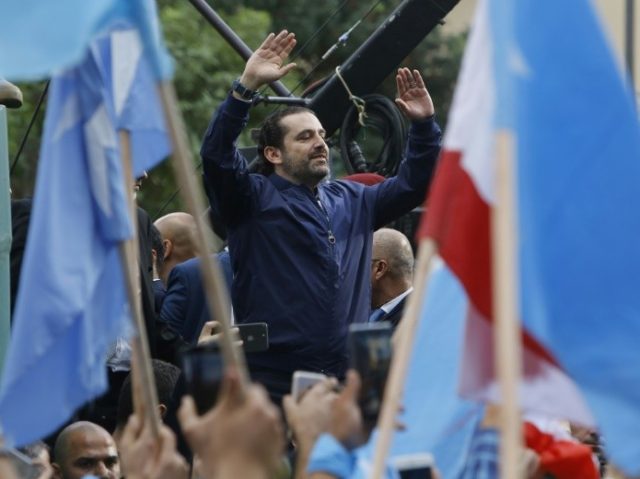Prime Minister Saad al-Hariri made his long-awaited return to Lebanon on Wednesday, but instead of formally tendering his resignation and explaining his decision to the public as expected, he retracted his resignation and announced he would continue serving as prime minister.
Hariri suddenly announced his resignation on November 4 during a trip to Saudi Arabia. In a televised address from Riyadh, he denounced the “evil” Iran and its Lebanese proxy Hezbollah were spreading in the region. He defended his decision to resign from Saudi Arabia by saying he had reason to fear for his safety.
Skeptics of Hariri’s stated reasons for resigning, notably including Lebanese President Michel Aoun, accused Saudi Arabia of holding him prisoner and forcing him to resign. France made efforts to dispel this notion, first by sending officials to meet with Hariri in Riyadh and declare he was not under duress, and then by inviting him to visit Paris before returning to Lebanon.
A few hours after he returned to Beirut late Tuesday evening, Hariri announced that, after speaking with Aoun, he was suspending his resignation. Hariri also attended a military parade for Lebanese Independence Day with Aoun and visited the grave of his father, former Prime Minister Rafik Hariri, who was assassinated in 2005.
“Our beloved nation requires at this precise moment in its life exceptional effort from everyone, in order to protect it as it faces danger and challenges. These efforts start with an adherence to a policy of neutrality with regards to everything that hurts internal stability and our brotherly relations with the Arabs,” Hariri said on Twitter after attending the parade.
“I’m staying with you and will continue with you,” he told supporters gathered outside his residence in central Lebanon.
Although that declaration sounds like a complete retraction of his resignation, Hariri clarified that he did indeed present his resignation to President Aoun upon returning to Beirut, but Aoun convinced him to delay resigning until he could participate in talks concerning “divisive issues and their effects on Lebanon’s relations with the Arab brothers,” as Hariri put it.
No details of when and where these talks will be held, or who the other participants will be, have yet been released. The New York Times notes that Aoun, although personally a Maronite Christian, is an ally of Iran’s Lebanese proxy Hezbollah while Hariri is a Sunni Muslim who opposes Hezbollah’s growing power and has strong ties to Saudi Arabia, so the two would theoretically have different opinions about which outside power is the greater divisive force in Lebanon.
A clue to the depth of that disagreement could be found in Hariri’s remark on Wednesday that he remains committed to keeping Lebanon out of “wars, external struggles, regional disputes, and everything that harms internal stability.”
He was most likely referring to Iranian support for Hezbollah, which Tehran uses as a military proxy in conflicts such as the Syrian civil war, but Hezbollah sympathizers would say Lebanon should resist Saudi influence and stay out of whatever “external struggles” the Saudis become involved in.
“The fact that Saad Hariri’s resignation has been delayed will be seen as a blow to Saudi Arabia. Many here believe Riyadh pressurised him to resign in order to bring about the Lebanese government’s collapse,” Martin Patience of the BBC assessed from Beirut.
Patience anticipated that Hariri might remain prime minister if Hezbollah agrees to curtail its foreign interventions, and noted that Hezbollah leadership has signaled a willingness to negotiate, while strongly supporting Hariri’s continued tenure.

COMMENTS
Please let us know if you're having issues with commenting.